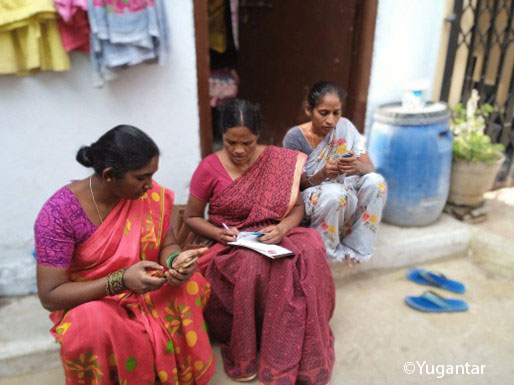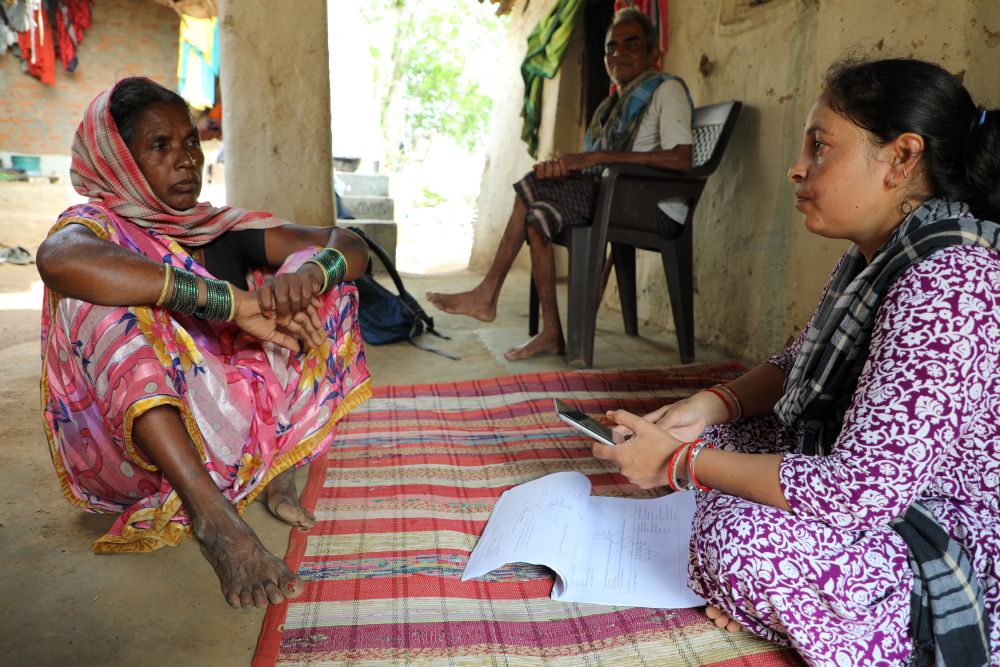The Middle East and North Africa (MENA) region is no stranger to turmoil. With the devastating conflict in Gaza, the displacement crises in Sudan, the crumbling economies in Lebanon and Syria, and the broader erosion of state capacity across the region, MENA continues to grapple with overlapping and deepening emergencies. Syria, for example, continues to endure a prolonged humanitarian crisis, with over 12 million people displaced and millions more struggling with food insecurity and limited access to basic services, conditions further exacerbated by a 2023 earthquake that hit the north of the country.
And yet, rigorous research and evidence to guide humanitarian response, policy action, and long-term recovery remain alarmingly scarce. 3ie is calling on partners around the world to come together to change this status quo.
The absence of evidence
More than a year ago, 3ie colleagues began asking a crucial question: what does the state of evidence in the MENA region actually look like? Their first blog revealed a striking insight: despite over 700 impact evaluations from the MENA region, the vast majority focus on just one country, i.e., Iran, and primarily on health, which accounts for more than 70% of evaluations in the region. Excluding health-focused research, the number of studies in core development economics areas, such as employment, education, social protection, livelihoods, and inequality, drops off sharply. That leaves a very thin layer of evidence to inform responses to the pressing challenges facing the region.
What about humanitarian support? You’d be hard-pressed to find more than a handful of rigorous studies evaluating aid efforts in MENA. And yet, millions of people across Sudan, Palestine, Yemen, Syria, and Libya rely on humanitarian assistance every day. What works? What doesn’t? How do we reach those most in need without causing harm? We still don’t have the evidence to answer these urgent questions.
The same gap exists in climate-change research. MENA faces some of the world’s harshest environmental shocks, including droughts, floods, extreme heat, and unlivable urban conditions. Yet evidence on practical, scalable climate adaptations, such as waste management systems, water governance, or green jobs, remains painfully limited.
Meanwhile, calls to address the region’s “youth bulge” and persistently low female labor force participation continue. But we lack rigorous evaluations on how to shift social norms, create sustainable jobs, or scale programs without backlash.
Why does this gap persist?
The evidence gaps can be partly explained by the complexity of working in this region. Many MENA countries are affected by conflict, political instability, or fragile governance systems, which make it difficult to carry out long-term, rigorous studies. Security concerns restrict fieldwork. Language barriers can limit collaboration with international research teams. And data systems, where they exist, are often incomplete, politicized, or inaccessible.
Perhaps more importantly, in the context of major humanitarian crises, people feel like there is a trade-off between immediate relief and research. The argument goes: people need food, water, shelter, so there’s no time for evaluation. Evidence is seen as a luxury that can wait. But if we wait for stability before we evaluate, we lose precious opportunities to learn in real time, improve interventions, and ensure that resources are used effectively.
There is a crucial difference between doing the right thing because we have evidence and assuming we are doing the right thing because it seems right. In crisis settings, relying solely on assumptions, even well-meaning ones, can lead to unintended harm or wasted resources. Evidence ensures that our actions are not just well-intentioned but truly effective.
A call for collaboration: Building the evidence MENA deserves
Evidence is not a luxury. It’s essential. Without knowing what works, we risk repeating the same mistakes, wasting precious resources, and failing the very people we seek to help. Rigorous research and real-time learning can and should go hand-in-hand with emergency response.
We must invest in research that matters. Research that asks the right questions for the right reasons, led by those closest to the context. That means supporting local researchers, creating long-term funding streams for under-researched topics like humanitarian response and climate adaptation, and building evidence not just for the sake of knowledge, but for real action.
We must also create opportunities for local researchers to connect with global research communities, where local knowledge, cutting-edge methods, and policy needs can meet.
This is why 3ie plans to launch Evidence Accelerators in various countries across the MENA region. The Evidence Accelerator is an initiative designed to help conduct policy-relevant impact evaluations, deliver contextualized evidence synthesis, and strengthen local technical capacity through advanced training and collaboration.
As Thomas Kelly, 3ie's Director for Evidence for Policy and Learning, puts it:
To maximize the impact of development efforts in MENA, we need to move beyond good intentions and ensure that every program, policy, and dollar invested is guided by robust evidence.
Together, we can champion rigorous research that addresses neglected but critical areas—humanitarian support, climate change adaptation, mental health, social protection, and female labor force participation—and ensure that evidence is not only generated but also used by policymakers to deliver meaningful change.
There are already bright spots of progress driven by committed institutions and funders in the region. Beyond our own work at 3ie, research centers such as J-PAL MENA, the International Growth Centre (IGC), IFPRI, EPoD at Harvard Kennedy School, and the Economic Research Forum (ERF) have made important strides in generating high-quality, policy-relevant evidence. These efforts are further strengthened by the backing of international funders like the World Bank, Fonds d'Innovation pour le Développement, the International Development Research Centre, and other bilateral donors who are helping create an enabling environment for evidence-based policy in the region.
Equally inspiring is the emerging role of local philanthropic organizations that are championing evidence-driven programs. The Sawiris Foundation for Social Development stands out as a leader in this space, actively investing in rigorous evaluations and scaling what works. The growing commitment from philanthropies like the May and Essam Allam Foundation also signals a promising shift towards locally-driven support for evidence-based interventions. Meanwhile, NGOs such as the Egyptian Food Bank and Giving Without Limits show how civil society actors can integrate evidence into their programming to reach those in need. Still, these important contributions represent just a starting point. The region needs far more support.
When the next disaster strikes, or the next generation is left without jobs or education, we shouldn’t be scrambling for answers. We should already know what works, why, and how.
It’s time to close the evidence gap. The region needs it. Its people deserve it.
If you have any questions, comments, suggestions, or interest in collaborating, please feel free to email on anagy[at]3ieimpact[dot]org.










